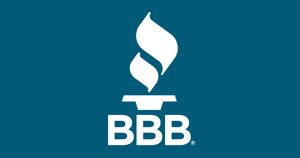Straight Talk: Four ways to avoid falling for medical billing scam

Unexpected messages saying you owe money for medical services may be a scam. BBB Scam Tracker has received many reports about phony medical bills and collections departments.
How the scam works
You receive a letter or a call informing you that you owe money on a medical bill. When you call the "billing department," they will insist that you need to pay immediately or else you will allegedly face consequences, such as fines, damage to your credit score, or even jail time. Eager to settle your debts, you provide your credit or debit card number. But before you pay, the scammer will ask you to confirm your name, address, and other sensitive information, which may include your Social Security or bank account number.
Straight Talk: Think twice before taking that Facebook quiz
This scam has several versions. In some cases, the bills and medical services are entirely fabricated. For example, one person told BBB Scam Tracker that they "received a medical bill for $500 for Covid testing that supposedly occurred in VA in January. I did a quick look into the business website and the site wasn't even registered/live until May. I was also out of state (in CA) when it claims I got tested."
In other cases, the medical work may be legitimate, but the bill is fabricated. One consumer reported to BBB Scam Tracker that his wife received a notice claiming to be a debt collection for medical work. He noticed small grammatical errors and spelling discrepancies in his wife’s middle name, the account numbers, and the medical center that the supposed claim was from. He also noticed the amounts listed did not correspond with the actual charges. The consumer also noted “The website looks like a hastily constructed page with dubious content and no telltale features common to legitimate business websites.”
No matter what pretense the scam uses, it is important to verify that the information on the claim is correct. Giving scammers your personal details may put you at risk for identity theft.
How to avoid medical billing scams
• Verify the claims. Legitimate collections companies should be able to tell you to whom you owe money and when you received services. Consider it a red flag if they are not forthcoming with this information. Hang up the phone and contact your doctor's office, hospital billing department, or insurance company directly and find out if you really do owe money.
• Look up the customer service number. It should be registered to an official business associated with your doctor or hospital.
• Do not give in to scare tactics. Scammers often try to make you feel like there will be extreme consequences if you do not pay them immediately. Legitimate businesses will not threaten you if you have questions or want to verify the information before making a payment.
• Guard your personal information carefully. If someone calls you unexpectedly and asks you to "verify" your personal information, think twice. Be sure you are talking to someone you know and trust before sharing information that could be used to commit identity theft, even if the caller sounds professional.
FOR MORE INFORMATION – If you spot a medical scam, report it at BBB.org/ScamTracker. Your experience helps us boost public awareness about common scam tactics. To learn more ways to protect yourself, go to BBB.org/AvoidScams. Visit our Scam Tips HQ page at BBB.org/ScamTips for information on other types of scams.
FOR BBB INFORMATION – Visit BBB.org or call us at 330-454-9401 to look up a business, file a complaint, write a customer review, read tips, find our events, follow us on social media, and more!
This article originally appeared on The Alliance Review: Four ways to avoid medical billing scam
